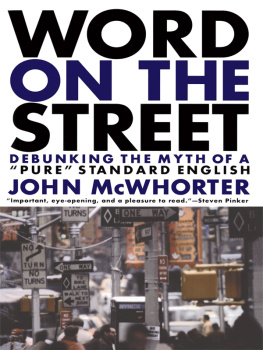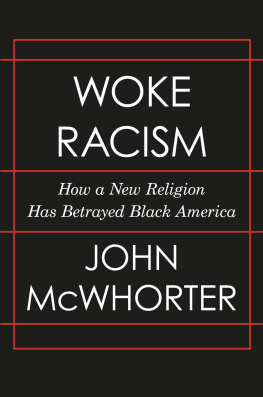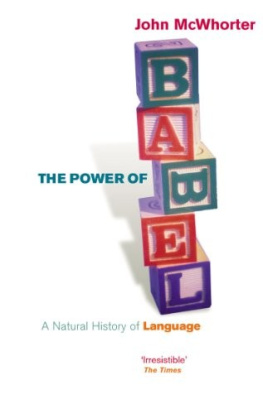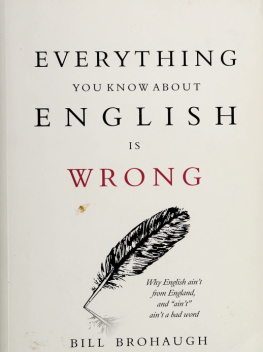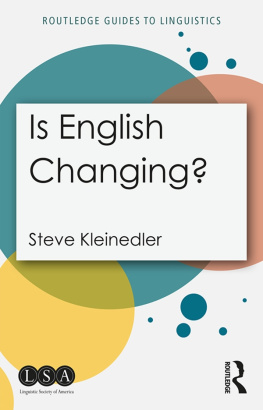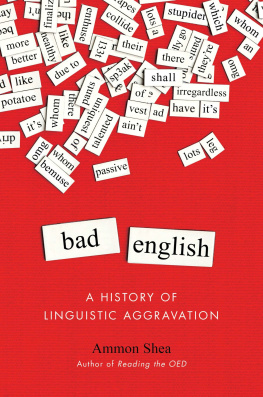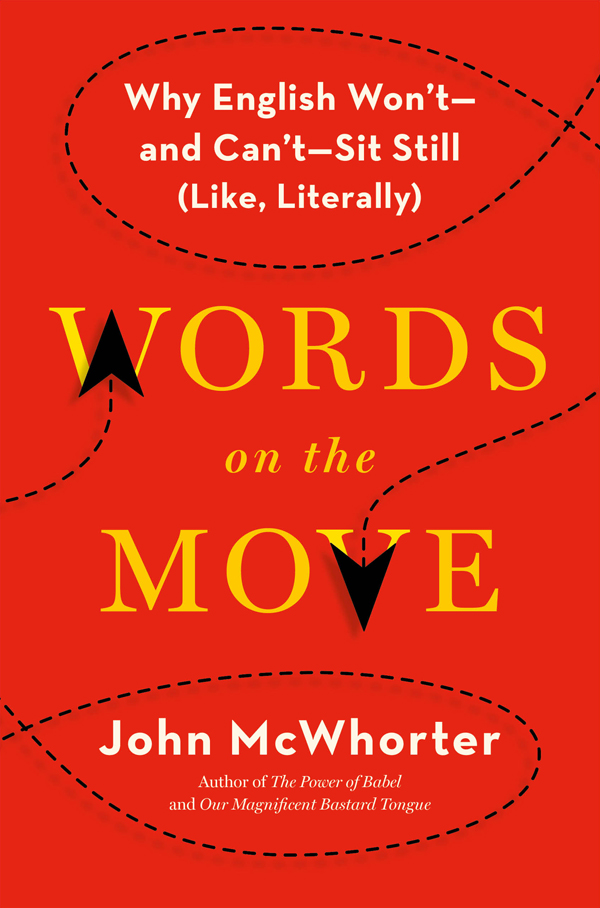Contents
Guide

The author and publisher have provided this e-book to you for your personal use only. You may not make this e-book publicly available in any way. Copyright infringement is against the law. If you believe the copy of this e-book you are reading infringes on the authors copyright, please notify the publisher at: us.macmillanusa.com/piracy.
To Martha.
I said having children would mean I would stop writing these.
You didnt want me to, I couldnt, and thank you for enabling (in both senses) my habit.
No one minds that today the clouds are neither in the same position nor in the same shapes they were yesterday. Yet more than a few mind that today the way people are talking is always changing.
Of course, if polled, few of us would put a check next to the statement I think language should never change. However, so often we dont like it when the change actually happens. Somehow it seems that language is always changing in the wrong ways .
It would seem that when most people express approval of language changing, they are thinking of something relatively nondisruptive: roughly, matters of keeping the language up to date. Certainly we will always need new words for new things. Historical transformations, especially, will change the languageit seems natural that our English is vastly different from the English of people seven hundred years ago living under a feudalist monarchy without electricity, photography, jazz, or penicillin. And most of us are okay with some slang coming and goingalthough, even here, many would seem to prefer that it be only so much.
Beyond that, things get touchy. When it comes to people using literally to mean what would seem to be its opposite, figuratively ( I was itching so much I was literally about to die!) , or like with a frequency that makes it sound more like punctuation than a word, the linguist may preach to the public that our language is dynamic, but to many, the better word would be degraded.
When Samuel Johnson started assembling what would become the first true dictionary of the English language, in the mid-eighteenth century, he felt the same way about the changes in speech he had heard throughout his life. At first he hoped that his opus would help stop this messiness once and for all, by enshrining the language in the frozen state of print. Yet by the time he finished the project, he had come to realize that this was an impossible task:
We laugh at the elixir that promises to prolong life to a thousand years; and with equal justice may the lexicographer be derided, who being able to produce no example of a nation that has preserved their words and phrases from mutability; shall imagine that his dictionary can embalm his language, and secure it from corruption and decay.
Johnson surely sounds wise, ahead of the curve. Yet a modern English speaker may easily receive Johnsons opinion as wisdom while at the same time gnashing his teeth over people using literally the wrong way. After all, Johnson lived a very long time ago; one may feel on a certain level that when it comes to language as we live and breathe it today, things are different.
But they arent. One of hardest notions for a human being to shake is that a language is something that is , when it is actually something always becoming . They tell you a word is a thing, when its actually something going on.
Yet, in real time, a words going on often feels more like its going offas in off the rails. Rather marvelous, then, is that precisely the kinds of things that sound so disorderly, so inattendant, so wrong, are precisely how Latin became French. The way people under a certain age use totally and the pronunciation of nuclear as nucular are not some alternate kind of language change sitting alongside the real kind. Language change like this is all there has ever been.
It isnt that language changes only because new things need names or because new developments bring people into new contacts. Language changes because its very structure makes transformation inevitable. To wit: even if a language were spoken by a community mysteriously condemned to live for millennia in a cave, under staunchly unchanging conditions, after three thousand years the language of that community would be vastly different from the one spoken when they were first herded into the cave, and outsiders would most likely hear it as a different language entirely. In Old English, for example, the word pronounced GAHST-litch meant spiritual, but as sounds shuffled around or wore away and its very meaning drifted along, it became our modern English word ghostly imagine that kind of thing happening to thousands of words bit by bit. Yet, obviously, little of what we could call dynamic would have happened in the cave. The change would happen simply because mutability is as inherent to the very nature of language as it is for clouds to be ever in transformation.
With clouds, change comes as the consequence of wind currents, temperature, and barometric pressure, things structurally eternal. In a similar way, permanent aspects of human anatomy and cognition are why language is as changeable as clouds are. Buzzing quietly around a words main meaning are assorted submeanings and implications, which have a way of creeping into how we actually use the word until its very meaning is forever transformed: hence a word meaning spiritual comes to refer to a particular kind of spirit, ghosts.
We should, for instance, be able to say that we find 2001: A Space Odyssey and Citizen Kane adorable. After all, so many people do adore those films. Yet there is a certain quiet kick in applying the vastness of adoration to something small, such as a child, or to someone perceived as small in an extended sense. To grant adoration to the small feels generous and thus sincere. Enough people savored that good feeling that after a while, adorable meant something more specific than admired: it came to mean charming, pleasing in a way associated with that which is little, immature, inferior, or dear to us. (The intersection between those four traits is, in itself, vaguely alarming!) Curious George is adorable; the Statue of Liberty, not so much.
Meanwhile, sounds are slightly misheard by each generations ears, with each generation making the sounds slightly differently. A word many once pronounced dafter now is only pronounced dawter; hence our familiar daughter . (Theres a reason its spelled like laughter !) This is much of why the actors in old movies sound increasingly odd to us as the decades pass. Its not only that they are making references to Calvin Coolidge and calling things swell, but that our very accent has morphed on from theirs.
Processes like this are exactly what creates the language we speak as opposed to the way dead people did. Yet we tend to have an easier time with weather than with language change. Much of the reason for that is something as majestic in itself as dictionaries.
Samuel Johnsons gift to the language was also, in an unintended way, a curse upon its speakers. We are accustomed to writers opening an exploration of a concept by citing a words definition in the dictionary, with the implication that words have eternal meanings just as numbers have values and atoms have certain combinations of subatomic particles. Dictionaries are large; the densely printed pages packed with information are fine music to any book person; dictionaries also tend to smell good. One loves them. Yet the weird truth is that for all their artifactual splendor, dictionaries are starkly misleading portraits of something as endlessly transforming as language. In terms of how words actually exist in time and space, to think of a words genuine meaning as the one you find upon looking it up is like designating a middle-aged persons high school graduation snapshot as what they really look like. Theres a charming whimsy in it, but still. A person receiving such a compliment often says, Oh, please!and words, if they could talk, surely would as well.


